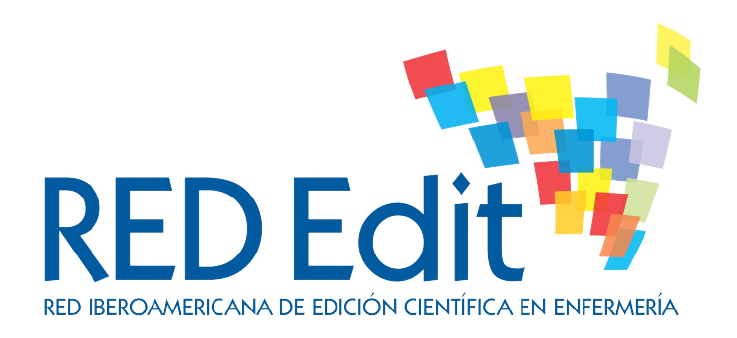Time management challenges for middle managers: a study in a hospital unit
DOI:
https://doi.org/10.37914/riis.v8i1.434Keywords:
time management, leadership, quality improvementAbstract
Background: healthcare units, such as hospitals, are complex and dynamic environments, requiring efficient management to achieve established objectives. Middle leaders play an essential role, and effective time management is key to improving productivity and performance. Objective: the main objective of this study was to investigate whether intermediate leaders at a Hospital Unit, in Portugal, can manage their time effectively. Methodology: the quantitative research used questionnaires applied to a non-probabilistic sample of 19 intermediate leaders. This allowed the analysis of variables such as the establishment of objectives and priorities, the use of time management tools, and the pressure to work overtime. Results: the results did not indicate a significant relationship between the leaders' professional group and time management, nor between years of experience and effectiveness in using these tools. Furthermore, frequent interruptions did not influence the analyzed variables. These results suggest that factors such as professional group or length of experience have a limited impact on time management. Conclusion: the study recommends that training programs focused on transversal skills can be more effective than approaches based on professional profile or experience.
References
Andrade, H. (2016). Mediação dos comportamentos de gestão de tempo na relação da autoeficácia com o desempenho e com a satisfação no trabalho [Tese de Mestrado, Instituto Universitário de Lisboa]. Repositório do Instituto Universitário de Lisboa. http://hdl.handle.net/10071/12988
Antunes, A. (2013). A liderança nas organizações positivas: estudos de caso em Portugal [Tese de Doutoramento, Universidade da Beira Interior]. Repositório Digital da Universidade Beira Interior. http://hdl.handle.net/10400.6/4399
Birkinshaw, J., Manktelow, J., D’amato, V., Tosca, E., & Macc, F. (2020). Mais velho, mais sábio? Como o estilo de gestão varia com a idade. Mit Sloan Management Review, 1, 15. https://mitsloanreview.com.br/mais-velho-mais-sabio-como-o-estilo-de-gestao-varia-com-a-idade/
Camilo, V. (2016) The pace of the leader: pacing patterns, time management behaviors and temporal leadership [Tese de Mestrado, Instituto Universitário de Lisboa]. Repositório do Instituto Universitário de Lisboa. http://hdl.handle.net/10071/12623
Chaves, E. (2021, 13 de janeiro). Administrar o tempo é planejar e gerenciar a vida. Chaves Space. https://chaves.space/2021/01/13/administrar-o-tempo-e-planejar-e-gerenciar-a-vida-v-5-2021-original-de-1998/
Claessens, B., Eerde, W., Rutte, C., & Roe, R. (2004). Planning behavior and perceived control of time at work. Journal of Organizational Behavior, 25(8), 937 - 950. https://doi.org/10.1002/job.292
Claessens, B., Eerde, W., Rutte, C. & Roe R. (2007). A review of time management literature. Personnel review, 36(2), 255-276. https://doi.org/10.1108/00483480710726136
Covey, S. (1995). First things first: como definir prioridades num mundo sem tempo (7ª ed.). Campus.
Drucker, P. (1967). The effective executive. Harper & Row.
Embertson, M. K. (2006). The importance of middle managers in healthcare organizations. Journal of Healthcare Management, 51(4), 223-232. https://doi.org/10.1097/00115514-200607000-00005
Golabli, M., Rezaei, S., Najjar, L., & Nameghi, M. (2013) The survey of relationship between time management with job stress and performance in material and procurement management of N.I.S.O.C (National Iranian South Oil Company). Journal of Basic and Applied Scientific Research, 3(10), 33-39. https://api.semanticscholar.org/CorpusID:111361861
Grissom, J., Loeb, S., & Mitani, H. (2015). Principal time management skills. Journal of Educational Administration, 53, 773-793. https://doi.org/10.1108/JEA-09-2014-0117
Häfner, A., Stock, A., & Oberst, V. (2015). Decreasing students’ stress through time management training: an intervention study. European Journal of Psychology of Education, 30(1), 81–94. https://doi.org/10.1007/s10212-014-0229-2
Hu, L., & Bentler, P. (1999). Cutoff criterio for fit indexes in covariance structure analysis: conventional criteria versus new alternatives. Structural Equation Modeling: A Multidisciplinary Journal, 6(1), 1555. https://doi.org/10.1080/10705519909540118
Khan, H., Farooqi, M., Khalil, A., & Faisal, I. (2016). Exploring relationship of time management with teachers’ performance. Bulletin of Education and Research, 38(2), 249-263. https://eric.ed.gov/?id=EJ1210299
Lyons, S. T., Duxbury, L., & Higgins, C. (2007). An empirical assessment of generational differences in basic human values. Psychological Reports, 101(2), 339-352. https://doi.org/10.2466/pr0.101.2.339-352
Macan, T. H. (1994). Time management: test of a process model. Journal of Applied Psychology, 79(3), 381–391. https://doi.org/10.1037/0021-9010.79.3.381
Mintzberg, H. (1973) The nature of managerial work. Harper and Row Publishers, Inc.
Pereira, C. P. (2011). Can I have a life outsider my job? A model for work-life conflict predictors and outcomes [Tese de Mestrado, Instituto Universitário de Lisboa]. Repositório aberto do Instituto Universitário de Lisboa. http://hdl.handle.net/10071/4502
Ribeiro, I. (2022). O impacto da sobrecarga de trabalho e da conscienciosidade no bem-estar e desempenho dos profissionais de TI [Tese de Mestrado, Instituto Superior de Economia e Gestão]. Repositório da Universidade de Lisboa. http://hdl.handle.net/10400.5/26405
Safonov, Y., Maslennikov, Y., & Lenska, N. (2018). Evolution and modern tendencies in the theory of leadership. Baltic Journal of Economic Studies, 4(1), 304-310. https://doi.org/10.30525/2256-0742/2018-4-1-304-310
Zijlstra, F. R. H., Roe, R. A., Leonora, A. B., & Krediet, I. (1999). Temporal factors in mental work: efects of interrupted activities. Journal of Occupational and Organizational Psychology, 72(2), 163-185. https://doi.org/10.1348/09631799916658
Downloads
Published
How to Cite
Issue
Section
License
Copyright (c) 2025 Paula Rangel, Carla Pinho

This work is licensed under a Creative Commons Attribution 4.0 International License.















